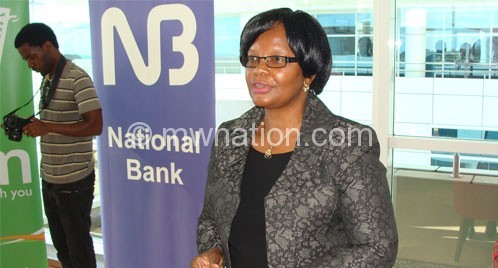‘Dubious’ bank papers hit Fisp

Malawi government has rejected 32 percent of bidders for this year’s Farm Input Subsidy Programme (Fisp) on the grounds that they submitted “dubious” bid bond securities.
The Ministry of Agriculture and Food Security—which processed bids for the K60 billion (about $150m) programme—threw out bids from 76 firms, 49 of which were suspected to have obtained the bid bond securities “dubiously”.
The bid securities, rejected for being suspected to be fake, are valued at K9.7 billion (about $242m), according to the figures in evaluation documents.
The police said on Thursday they arrested two people in connection with the dubious bids.
National Police deputy police public relations officer Kelvin Maigwa said the two were arrested in connection with the submission of fake bid bonds for Fisp tenders.
“The suspects are on police bail. Their signatures are being analysed for specimen then the file will be sent to court for prosecution,” Maigwa said.
He said the two have been charged with forgery, uttering false document which they presented to Ministry of Agriculture and making false document.
A bid security is a mechanism for ensuring the execution and delivery of items that are formally bid. To ensure security, the bidder and someone who agrees to guarantee the bidder’s bid—usually a bank as surety—jointly signs a bid bond so that in the event that the bidder refuses to enter into a contract, the guarantor is held responsible.
Minutes of a meeting by the Internal Procurement Committee in the Ministry of Agriculture held on August 12 2013 quote its chairperson as having reported that some 76 bidders were disqualified for various reasons, among them, using fake bid securities.
“He reported that 76 bidders out of 151 that submitted bids for the fertiliser failed to proceed to the next stage of the evaluation because they had used fake/bogus bid securities…,” read the minutes in part.
The other 27 bids were disqualified because “validity period for some bids were less than 120 days, some bidders did not even submit bid securities while some failed because they did not sign their bid submission forms.”
We have also seen a separate list of 49 companies (names withheld) which were specifically disqualified for using bid security documents suspected to have been obtained dubiously from various commercial banks in the country.
In an interview, NBS Bank chief executive officer Bernadette Mandoloma said she could not say much on the matter but acknowledged that the issue is in the hands of the police.
Said Mandoloma in an e-mail interview: “As for NBS Bank, we are not in a position to comment as the matter is in the hands of the Police.
“I wish to refer you to contact Bankers Association of Malawi [BAM] on the matter as you have rightly alluded to the fact that it involves various banks.”
Corporate affairs manager for National Bank, Annie Magola, whose bank was associatied with four of the rejected bids, could not confirm as to whether the said customers had applied for the said documents, citing customer confidentiality.
“If the documents referred to in your e-mail have been queried by government, our customers should bring them back to us to amend. If the customers in question are not bringing them back to us then something is wrong,” she said.
Chief executive officer for FDH, Phillip Madinga, whose bank is associated with six of the rejected bids, said he was not aware of the issue as “the whole banking sector is aware that fraudsters are now getting sophisticated with improvements in technology”.
“What is important is for government and the public at large to be more cautious and not to take any document purported to be issued by a financial institution on its face value,” Madinga said.
Communications officer for Standard Bank, Madalitso Jonazi, whose bank was mentioned by seven of the disqualified bidders, said the bank will work with government and the police “in order to get hold of the culprits who are issuing these fake documents.”
Said Jonazi: “There is no problem with our system as we believe that we have sufficient internal controls. Suppliers who submit fake guarantees or bonds purported to be from our bank should have submitted forged documents on their own to win contracts from the government.
“Through this process we have managed to flush out all those documents which could not be traced back to our system. Where the government requests us to check or validate any document which is alleged to have been issued by the bank, we have always done so.”
Only one of the bid securities was said to have been obtained from Malawi Savings Bank, and publicist Brenda Chilima said:“The fact that a fake security was identified and nullified attests to the fact that our systems are working.
“People with ill-intended motives have their own way of forging documents both locally and internationally. Even one of the world’s most secure currency, the United States dollar, has been forged over and over again the world over.
“The bank is unable to comment on specific documents you have referred to because such comments would undermine whatever investigations that may be underway.”
The other disqualified bidders claimed to have obtained their securities from International Commercial Bank, EcoBank and Trust Bank.
Government budgeted to buy 150 000 tonnes of fertiliser in the 2013/14 National Budget to distribute it 1.5 million farming families at a subsidised price of K500 against a commercial value of roughly K13 000 (about $32).





